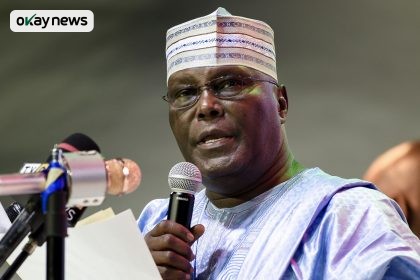Nigeria’s crude oil production saw a modest uptick in January, according to the latest Monthly Oil Market Report (MOMR) released by the Organization of the Petroleum Exporting Countries (OPEC). The report revealed an average daily output of 1,539,000 barrels per day, narrowly surpassing the quota assigned to the African oil giant.
Although this announcement gives Nigeria’s struggling oil industry some hope, problems still exist. Oil theft continues to plague the Niger Delta, and underinvestment threatens to derail the government’s ambitious goal of increasing production to over 2 million barrels per day.
“Growth this year is expected to be driven by transportation fuels on the back of strong air travel demand and healthy road mobility,” the OPEC report stated, outlining a positive outlook for global oil demand. This anticipated growth hinges on robust economic activity in non-OECD countries, particularly in sectors like transportation, industry, and agriculture.
However, the report also highlighted discrepancies between official figures. While Nigeria reported production figures of 1,539,000 bpd, OPEC’s secondary sources indicated a lower output of 1,495,000 bpd. These discrepancies underscore the challenges in accurately tracking oil production in Nigeria, particularly amidst rampant oil theft.
The government’s pursuit of increased oil production faces significant hurdles. The Niger Delta region, the heart of Nigeria’s oil industry, remains plagued by oil theft. Despite ongoing efforts to combat this illicit activity, illegal refineries continue to spring up, draining the nation’s oil wealth and exacerbating environmental damage.
Read Also: Nigeria Eyes OPEC Quota Hike as Oil Production Rebounds
Furthermore, the proposed resumption of oil drilling in Ogoniland, a region devastated by decades of oil spills, has ignited fierce opposition. Local communities, citing environmental concerns and a lack of meaningful consultation, have vehemently protested the government’s plans.
The road to increased oil production for Nigeria is fraught with challenges. Addressing these challenges requires a multifaceted approach, including a concerted effort to combat oil theft, meaningful engagement with local communities, and increased investment in the oil sector. The success of these efforts will not only impact Nigeria’s economic fortunes but also have far-reaching implications for the environment and the livelihoods of millions of Nigerians.
The news of increased oil production in Nigeria carries with it a complex human angle. While it offers the promise of increased revenue for the government, the reality on the ground is often starkly different. Oil theft deprives local communities of essential resources, while oil spills devastate the environment and threaten the livelihoods of fishermen and farmers. The proposed resumption of oil drilling in Ogoniland raises serious concerns about the potential for further environmental damage and the displacement of local communities. These human costs must be carefully considered as the government pursues its ambitious oil production targets.






